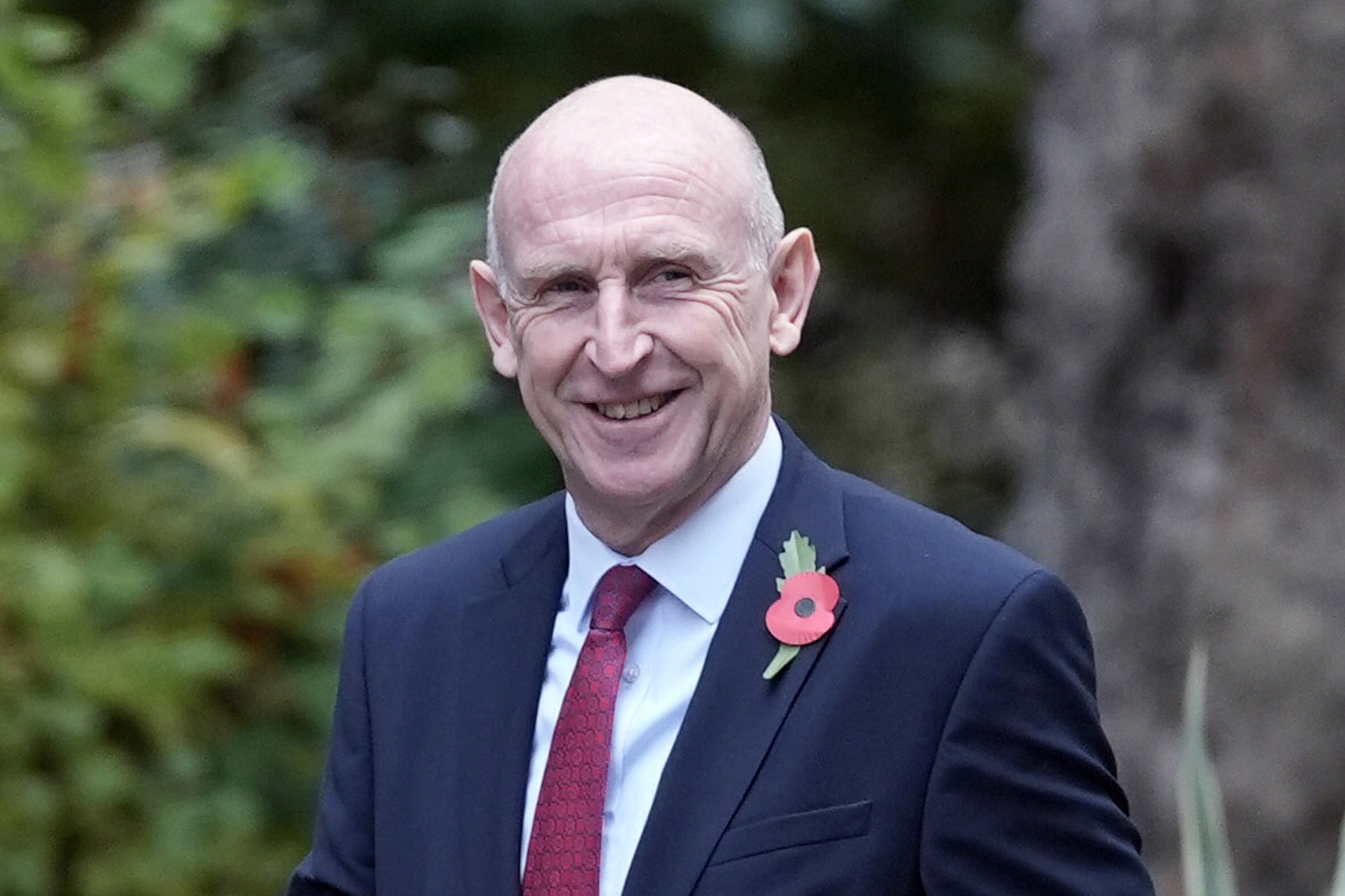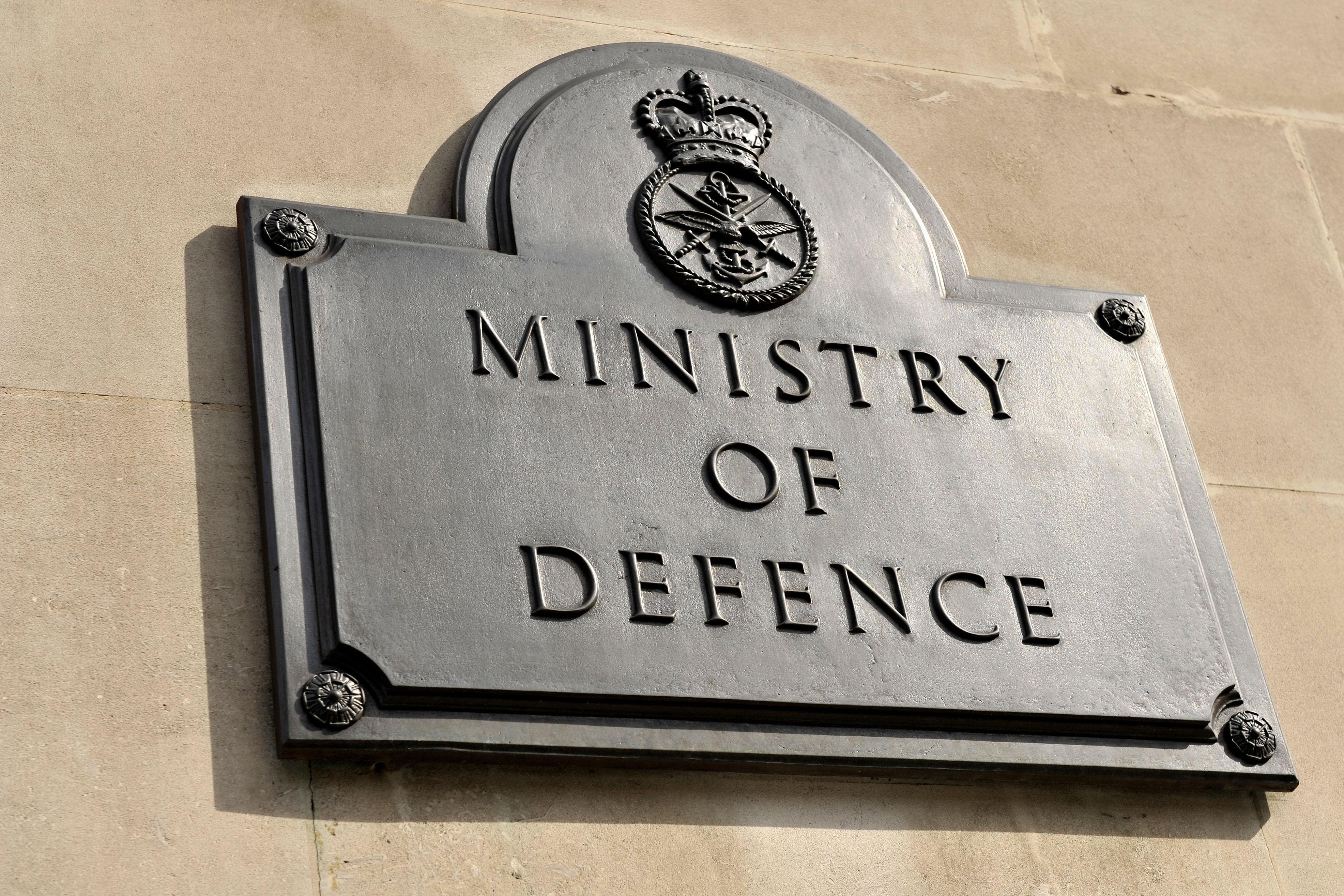Ukraine war led my son to join the army, says defence secretary
It comes as the veterans minister revealed he has re-enlisted in the Royal Marines reserves in case a war breaks out in Europe
The defence secretary has revealed his son joined the army as a result of Russia’s invasion of Ukraine, saying the conflict is now “personal”.
John Healey said his son’s decision to join the British army reservists has allowed him to better understand the real-life impact of decisions he may make in a ministerial capacity.
He said: “It weighs heavily on me as defence secretary, knowing that if we face conflict, it will be my decision to send British forces and personnel into situations which put them at risk. It’s a responsibility of the post, but now it’s personal as well.”
His son, Alex, who is in his late twenties, is now an infantryman in the army reserves – a decision Mr Healey says he took in the days after Russia invaded Ukraine.

The defence secretary told The Telegraph: “[It’s] not something I’ve talked about before. But in fact, it was Ukraine. So when Putin went in, in February 2022, the next day we were having lunch together and he said to me, ‘Dad, if I were Ukrainian, I’d join up today’.
“And it was very soon after that he came to me and to his mum and said, ‘I want to join up. I want to be a reservist.’ That’s what he’s done.”
Speaking about the personal impact of his son’s decision, Mr Healey added: “I can understand better the feeling of the families of those who… I hope it doesn’t happen, but if necessary, I will have as defence secretary to commit to conflicts where they may be at risk.”
The defence secretary warned the world is “undoubtedly in an era of insecurity”.
Meanwhile, veterans minister Al Carns – who served and led during four tours in Afghanistan – earlier this week revealed he had re-enlisted in the Royal Marines as a reservist.
Mr Carns, who was awarded the Military Cross in 2011, said he wants to be ready to fight should war erupt in Europe, telling The Times: “If anything happens, I want to go back to the military.”
“You can see the very freedoms we fought to protect and shape the international rules-based system after the Second World War are under threat,” he added.
“I have a feeling that if there was ever a requirement, I don’t think any veteran would hesitate. When you serve you have that dedication and service to your country.

“You never lose that, even if you leave. If you have physical or mental issues in service that usually continues with you so all veterans I think, continue to serve, in one way, shape or form until the day they die.”
It comes amid growing concern about the UK’s ability to defend itself should a war break out in Europe.
Last month, the defence secretary warned Britain’s armed forces are so depleted that the country is not ready to fend off an invasion.
In his most damning assessment yet of the state of the UK’s defence capability, Mr Healey said the military could conduct “operations”, but would be unable to stop an enemy from invading.
Meanwhile, president-elect Donald Trump has been highly critical of Nato, complaining that the US contributes too much to its budget while EU members spend too little on defence.
During the election campaign, he suggested the US would only defend members of the alliance from a future attack by Russia if they met their spending obligations.
Join our commenting forum
Join thought-provoking conversations, follow other Independent readers and see their replies
26Comments